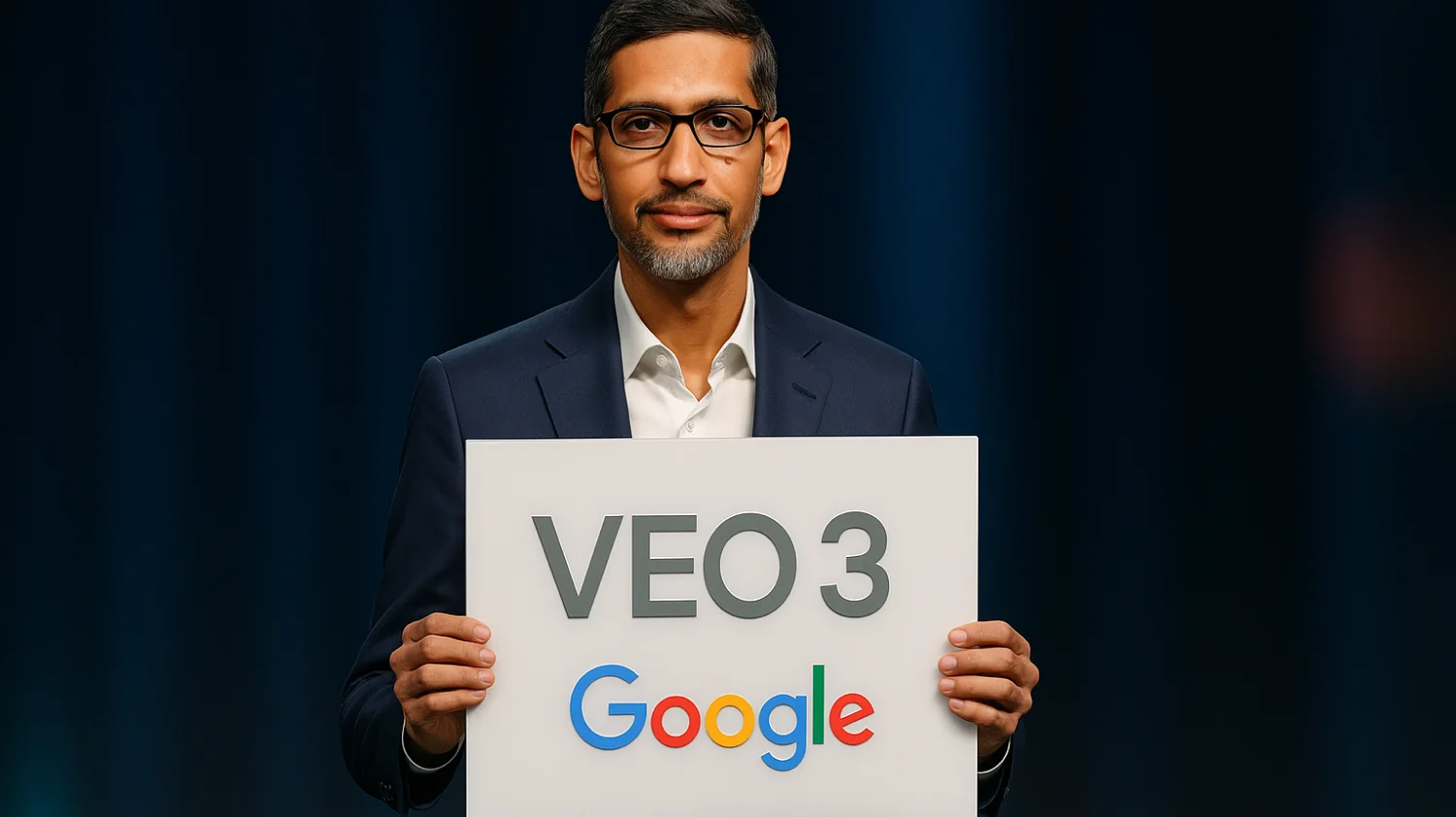Artificial Intelligence continues to evolve at lightning speed—and Veo3 AI is at the forefront of this technological revolution. As businesses, creatives, educators, and developers look for smarter and more intuitive tools, Veo3 AI emerges as a powerful next-gen solution that’s shaping how we generate content, automate tasks, and interact with machines.
In this comprehensive guide, we’ll explore everything you need to know about Veo3 AI in 2025, including its features, use cases, accessibility, how it compares to earlier AI models, and why it matters for your career or business.
What is Veo3 AI?

Veo3 AI is a cutting-edge artificial intelligence model developed by Google DeepMind. It’s designed to generate high-quality video from text prompts—a major leap in AI content generation. While its predecessors (like Veo1 and Veo2) focused on improving image-to-video capabilities, Veo3 takes multimodal creativity to the next level with enhanced realism, better temporal consistency, and support for complex prompts.
Think of it as ChatGPT for video—only smarter, sharper, and built with cinematic finesse.
Key Features of Veo3 AI
🎥 1. Text-to-Video Generation
Veo3 can generate full video sequences (up to 60 seconds) from a single descriptive prompt.
Example Prompt:
"A cinematic aerial shot of a futuristic Tokyo skyline at night, with flying cars and holographic billboards."
Result: A realistic, stylized video resembling sci-fi movie scenes.
🖼️ 2. High-Resolution Output
-
Supports 1080p HD
-
Smooth motion transitions
-
Advanced scene transitions
🎯 3. Prompt Fine-Tuning
You can fine-tune the video style by specifying:
-
Camera angles
-
Lighting
-
Movement
-
Scene composition
-
Art style (anime, documentary, surrealism, etc.)
🧩 4. Multimodal Capabilities
Veo3 AI can take in text, images, and reference clips to generate more tailored results.
⚙️ 5. Custom Control for Professionals
Creators can now edit outputs in layers (like Adobe Premiere) for more control over each element.
Use Cases for Veo3 AI
🔹 1. Content Creation & Marketing
-
Generate short-form videos for YouTube Shorts, TikTok, and Instagram Reels
-
Build cinematic trailers without filming anything
-
Personalize ads based on user input
🔹 2. Education
-
Teachers can auto-generate explainer videos or science experiments.
-
Perfect for creating engaging visual learning material.
Also check out: Free AI Courses with Certificates
🔹 3. Film & Animation
-
Previsualization for directors
-
Storyboarding and rapid prototyping
-
VFX and scene generation without green screens
🔹 4. E-commerce & Branding
-
Product showcases
-
Lifestyle ads based on audience segmentation
🔹 5. Accessibility
-
Audio-descriptive video creation for visually impaired users
-
Voice-to-visual storytelling for creators with disabilities
How Does Veo3 AI Work?
Veo3 AI is built on generative diffusion models, similar to how DALL·E generates images from prompts, but optimized for motion, soundless rendering, and time coherence. It processes:
-
Scene composition
-
Object tracking
-
Movement logic
-
Temporal coherence
The result is fluid video that feels organic—not robotic or glitchy.
Veo3 AI vs Sora, Runway, and Other Tools
| Feature | Veo3 AI | Sora by OpenAI | Runway Gen-2 |
|---|---|---|---|
| Video Length | Up to 60s | Up to 60s | 4–16s |
| Resolution | 1080p HD | 1080p HD | 720p |
| Realism | High | Very High | Moderate |
| Prompt Detail | Advanced | Advanced | Limited |
| Fine-tuning | Yes | Yes | Partial |
| Target Audience | Creators, Studios | Filmmakers, Media | Creators, Social |
Is Veo3 AI Available to the Public?
As of mid-2025, Veo3 AI is in limited beta via Google's VideoFX platform. Creators can request access through a waitlist, with early users mostly from:
-
Creative agencies
-
Educational institutions
-
AI research labs
Stay tuned as Google is expected to roll out a public version soon.
Ethical Concerns and Limitations
Despite its power, Veo3 raises questions about:
-
Deepfake misuse
-
Copyright infringement
-
Bias in generated content
-
Data privacy and content ownership
To counter these risks, Google has implemented:
-
Watermarks
-
Usage restrictions
-
AI traceability
Learning Veo3 AI and Similar Tools
If you're new to video AI, consider these free learning resources:
Final Thoughts
Veo3 AI is not just another text-to-video model—it's a game-changer. Whether you're a marketer, educator, or content creator, this tool offers limitless potential for storytelling, branding, and creativity. While it’s still rolling out, keeping your eye on Veo3—and learning how to use it—could put you miles ahead in a rapidly evolving digital world.
FAQ: Veo3 AI
Q1: What is Veo3 AI?
Veo3 AI is a next-generation video generation tool developed by Google DeepMind that converts text prompts into high-resolution videos.
Q2: Is Veo3 AI free to use?
Currently, Veo3 AI is in closed beta. Access is limited, and pricing has not yet been publicly released.
Q3: What makes Veo3 different from other AI video tools?
Veo3 offers longer videos (up to 60 seconds), more cinematic detail, and advanced prompt controls compared to most competitors.
Q4: Can I create realistic human videos with Veo3?
Yes, Veo3 can generate lifelike human characters and realistic movement, but use of deepfakes and synthetic media is strictly monitored.
Q5: How do I get access to Veo3 AI?
You can apply via Google’s VideoFX platform. Limited beta invites are being distributed in stages through 2025.
Q6: What industries can benefit most from Veo3?
Media, marketing, education, e-commerce, filmmaking, and accessibility-focused content creators will see the biggest advantages.

You must be logged in to post a comment.